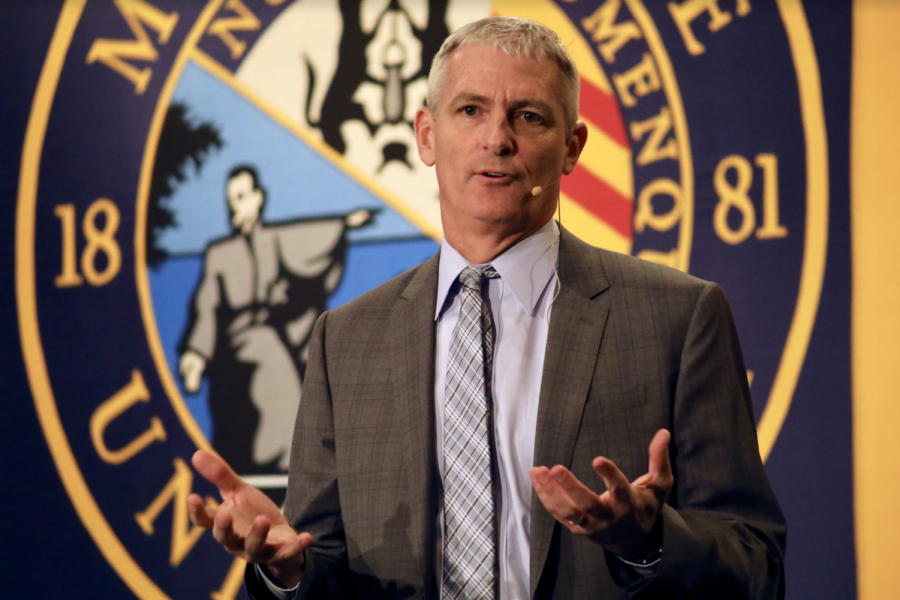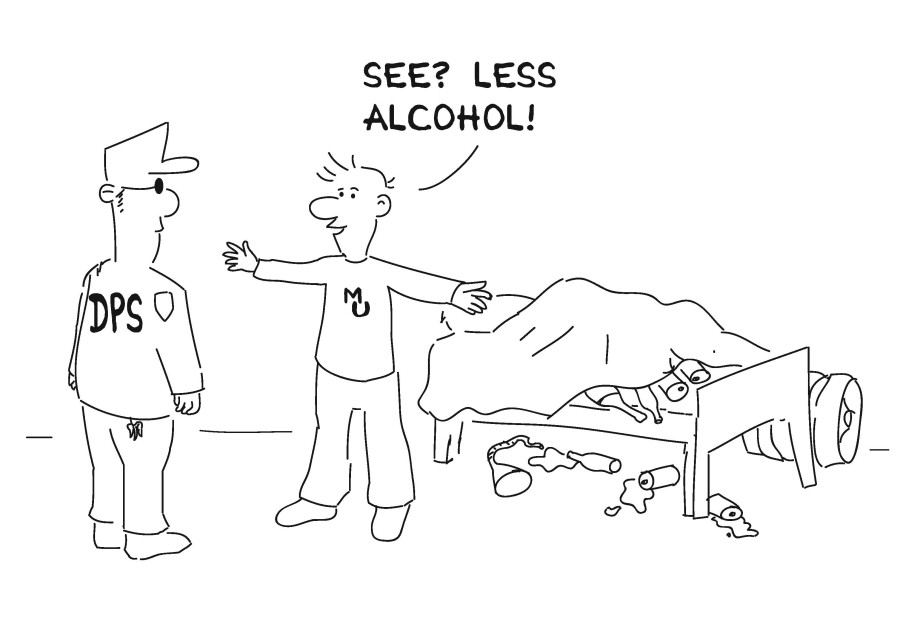 With green-tinted beer dotting “Kiss Me, I’m Irish” shirts, college kids across the nation can take drinking to an extreme on St. Patrick’s Day. But in Wisconsin, the party never really ends: In a report released earlier this month by the University of Wisconsin Population Health Institute, it was found that Wisconsin is home to the highest number of binge drinkers in the country.
With green-tinted beer dotting “Kiss Me, I’m Irish” shirts, college kids across the nation can take drinking to an extreme on St. Patrick’s Day. But in Wisconsin, the party never really ends: In a report released earlier this month by the University of Wisconsin Population Health Institute, it was found that Wisconsin is home to the highest number of binge drinkers in the country.
The report stated that the estimated total annual cost of excessive drinking in Wisconsin is $6.8 billion. The total cost included injuries, pre-mature deaths, lost productivity, crimes, violence and motor vehicle crashes.
Penny Black, assistant researcher and program evaluator at the University of Wisconsin, was a co-author of the report.
“People like to say, ‘it’s our culture,’ but really, this is just an excuse to justify unhealthy – and expensive – behavior,” Black said. “Wisconsin had a thriving temperance league long before it had its first brewery.”
Black said there are three main reasons why citizens of Wisconsin tend to over drink: availability, affordability and acceptability.
“Wisconsin ranks 48th lowest in beer tax, and the beer tax hasn’t been raised since the ’60s,” Black said. “Every tax in the state has been raised over the past 50 years, except alcohol. Low prices lead to high consumption.”
“Alcohol is available at every event – church, school, sport, festival, etc.,” Black added. “Wisconsin is a ‘local control’ state, meaning that each municipality decides whether to grant alcohol licenses to retailers. There is no central registry for alcohol licenses, so on any given day, no one can tell you how many alcohol licenses there are throughout the state. Research shows that high availability leads to high consumption.”
Some of the issues further discussed in the report were increased healthcare costs, increased insurance rates, diverted government spending and lost economic output.
The study was conducted on behalf of Health First Wisconsin, an organization specializing in addressing substance abuse, but Black said the organization was not involved in conducting the study to ensure no bias was introduced.
Black worked on the study and report for almost a year and consulted the Centers for Disease Control and Prevention researchers who have conducted similar studies.
This year, Marquette began the campaign “Backout Before Blackout” to encourage students to make healthy and smart choices regarding alcohol.
Sofia Sarmiento, a freshman in the College of Business Administration, said she found the fliers around campus helpful.
“Instead of just telling us that drinking under 21 is bad, they offered us practical advice, like to travel in groups,” she said. “I found this much more effective and useful, because when you tell teenagers not to do something, they tend to want to do it more.”
Robert Peoples, an associate professor in the department of biomedical sciences, has been studying alcohol action on the brain for more than twenty years.
“It’s important for each person to know when the line has been crossed from moderate to excessive drinking and to know that the line differs for different people, (depending on) factors such as gender and body size,” Peoples said. “For example, binge drinking is defined as four or more standard drinks on a single day for women, and five or more drinks on a single day for men.”
Peoples advises all age groups to watch the amount of alcohol they consume.
“No age group is free from the risks of alcohol abuse, so everyone needs to be aware of their alcohol consumption,” he said. “One effect of alcohol on the brain that is very commonly seen in alcoholics is anxiety, which can contribute to alcoholism as the person tries to self-medicate by drinking more alcohol.”
Peoples and Black agreed that the long-term effects of binge drinking impact not just the individual, but others as well.
“There are many problems resulting from excessive alcohol use – injuries, pre-mature deaths, lost productivity, crimes, violence, motor vehicle crashes, etc. – (which) lead to economic costs to the individual drinker,” Black said. “But also to every other person in Wisconsin.”
http://healthfirstwi.org/alcohol/documents/BurdenofAlcoholReportandAppendix.pdf
http://uwphi.pophealth.wisc.edu/about/staff/black-penny.htm




